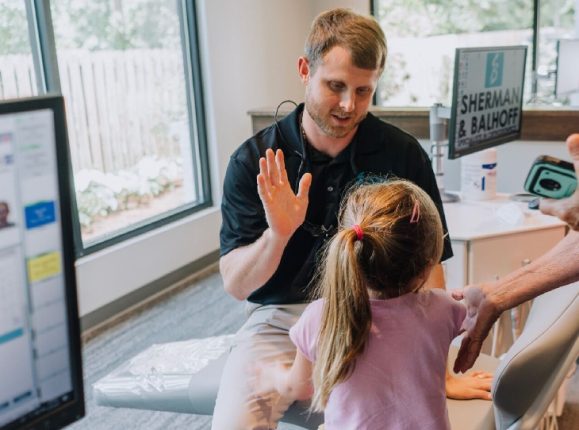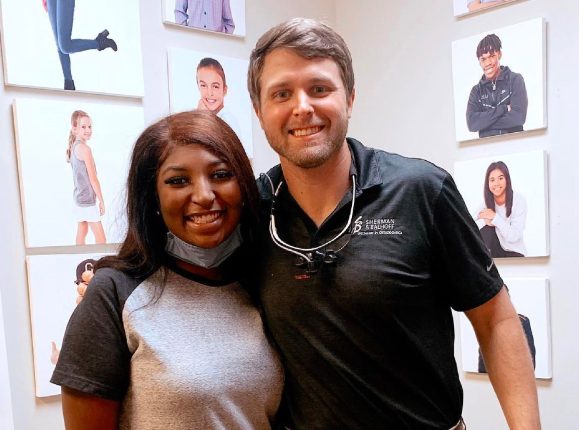TMJ SYNDROME AND TMD JOINT DISORDER

Does your jaw or cheek hurt when you chew or clench your teeth?
Does it sometimes hurt to talk or open your mouth wide?
Does your jaw often make popping or clicking noises?
You may be one of millions of Americans suffering from TMJD. Commonly known as TMJ, temporomandibular joint disorders (TMJD) often leave sufferers living in chronic pain. Your jaw, ear, and neck may hurt, and you may even experience constant headaches.
What can you do about TMJD pain?
First, if you suspect you have TMJD, you should always consult with an orthodontic professional to ensure a proper diagnosis and appropriate treatment. However, all of the following suggestions are healthy options, regardless of whether you have TMJD—and if you do, these tips should help alleviate your pain:
-
Reduce your stress level. When we’re stressed, we often clench our jaws and may even clench our teeth during the night. Reducing your overall stress can lead to a more relaxed state and relieve your muscles of tension.
-
Practice good posture—especially if you have a desk job. Improper posture can result in some muscles having to overcompensate, leading to muscle fatigue.
-
Avoid hard foods. Think of working out at the gym too hard one day and having sore arms the next. If you don’t let your muscles rest properly, you can overstretch them, leading to serious pain. Your jaw muscles work on the same principle: if they’re already sore, don’t overwork them by eating hard foods.
-
Avoid chewing gum. Even if it doesn’t take much effort to chew some bubble gum, the constant repetitive motion is just like lifting a half-pound weight a thousand times: after a while, your arm is still going to get sore.
-
Don’t prop your head up with your hands. When you do, it puts pressure on your jaws, leading to more muscle fatigue.
-
Try not to grind or clinch your teeth. Just like eating hard foods or propping your head on your hands, this overworks your jaw muscles.
Additionally, consider taking over-the-counter anti-inflammatory medications, such as ibuprofen. However, as with all medications, seek medical advice from a qualified professional first.
While following these suggestions should relieve your pain, if it persists or worsens, your orthodontist may recommend additional treatment, such as night guards, crown and bridge work, changing your bite, or other procedures.
The good news is that you don’t have to live with TMJD pain! There are a number of ways to treat and even eliminate your suffering. To start on the road to recovery, make an appointment with Drs. Sherman and Balhoff today!











